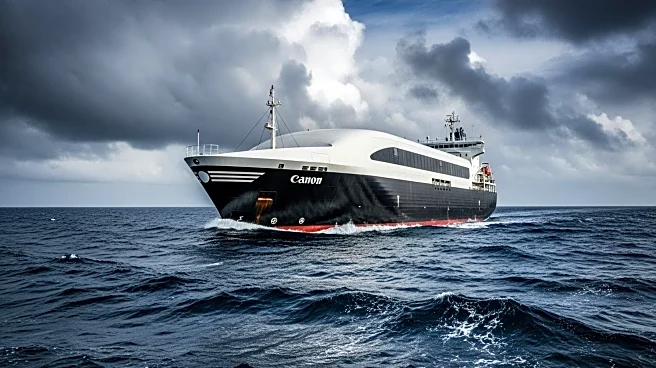What's Happening?
The U.S. Treasury Department has announced new sanctions targeting 50 individuals, companies, and ships primarily based in the United Arab Emirates, Hong Kong, and China. These entities are accused of facilitating the shipment of Iranian oil and sales of liquefied petroleum gas, which is seen as a violation of existing sanctions. The sanctions include penalties on two dozen 'shadow fleet' ships that obscure the origin of Iranian oil, a China-based crude oil terminal, and a non-state-owned Chinese refinery. These measures are part of President Trump's 'maximum pressure' campaign aimed at reducing Iran's oil exports to zero and denying Tehran access to nuclear weapons. The sanctions restrict access to U.S. property and financial assets and prohibit U.S. businesses and citizens from engaging with the sanctioned entities.
Why It's Important?
These sanctions are significant as they represent a continued effort by the U.S. to exert economic pressure on Iran, aiming to curb its nuclear ambitions and reduce its ability to fund activities deemed threatening to U.S. interests. The sanctions could further isolate Iran economically, impacting its oil revenue and potentially destabilizing its economy. The move also underscores the geopolitical tensions between the U.S. and Iran, with implications for global oil markets and international relations, particularly involving China and other nations engaged in trade with Iran.
What's Next?
The sanctions are likely to provoke responses from Iran and its trading partners, potentially leading to diplomatic tensions or retaliatory measures. The U.S. may continue to monitor and expand its sanctions regime, targeting additional entities involved in Iranian oil trade. The international community, including the United Nations, may also play a role in addressing the broader implications of these sanctions on global trade and security.











